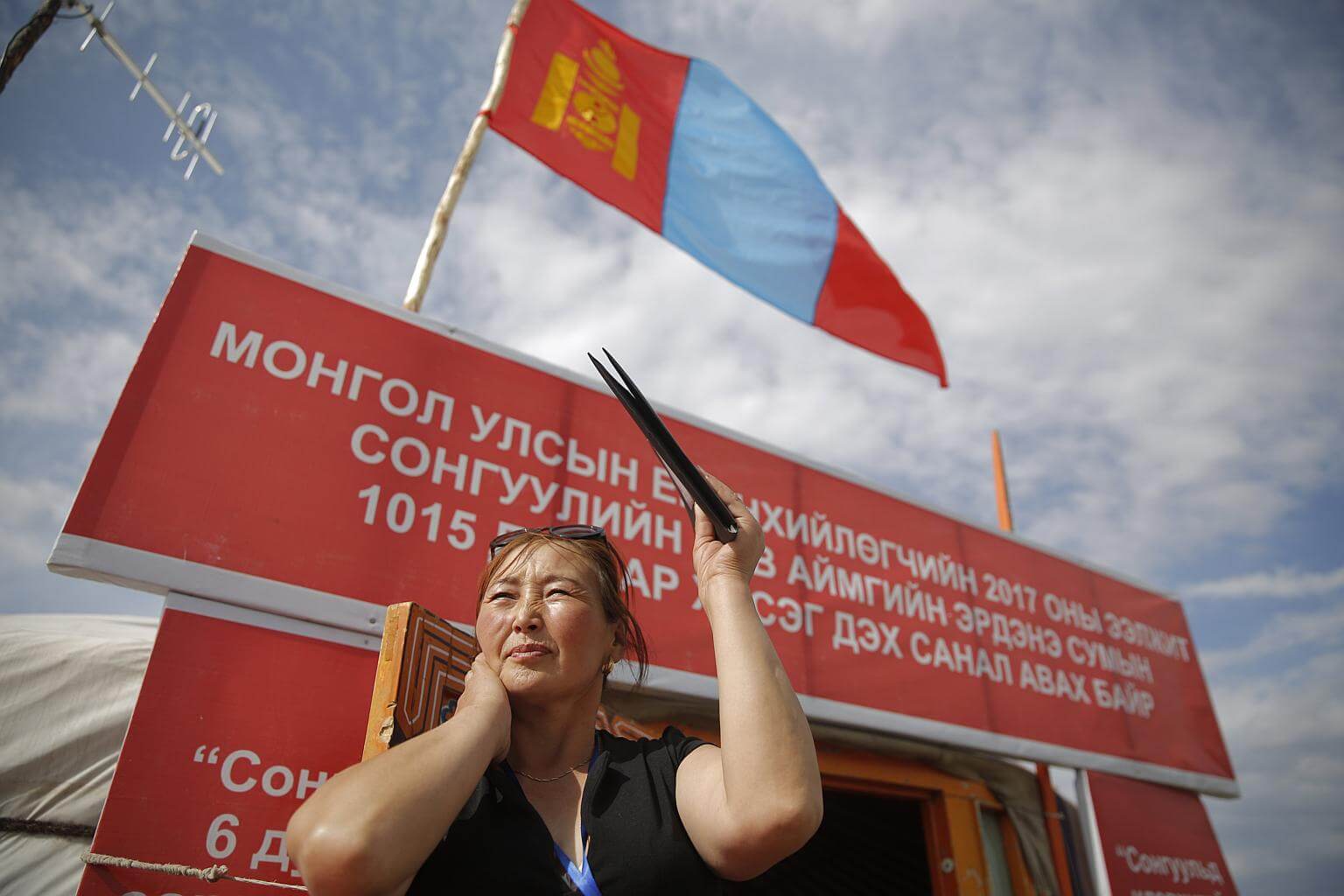Mongolia to hold presidential runoff vote on July 9: Official
Sign up now: Get insights on Asia's fast-moving developments

A Mongolian election official waiting for voters during Mongolia's presidential elections at a polling station in Erdensom County, Tuv Province, on June 26, 2017.
PHOTO: EPA
Follow topic:
ULAN BATOR (AFP, REUTERS) - Mongolia will hold its first ever presidential runoff vote on July 9 after none of the three candidates won an absolute majority in the election, electoral officials said Tuesday (June 27).
The General Election Committee said Khaltmaa Battulga of the opposition Democratic Party led the vote with 38 per cent and will face off against parliament speaker Mieygombo Enkhbold of the Mongolian People's Party (MPP), who finished second with just over 30 per cent.
After the final districts were counted overnight, Battulga emerged with 517,478 votes, 38.1 per cent of the total, according to Mongolian state television.
Ruling Mongolian People's Party (MPP) candidate Miyeegombo Enkhbold, regarded as pro-investment and market-friendly, scraped through to the second round with 411,748 votes, 30.3 per cent of the total.
The election was seen as referendum on the government's economic recovery plans and China's role in the country.
Battulga is regarded as a resource nationalist who is suspicious of neighbouring China, while Enkhbold, an establishment politician and parliamentary speaker, appears to have suffered as a result of his party's austerity policies.
The new MPP administration raised interest rates and slashed public spending last year to try to cope with heavy debts and a precipitous fall in the value of Mongolia's currency, the tugrik.
Enkhbold, the pre-election favourite, was trailing in third place for much of the count after a stronger than expected performance by Sainkhuu Ganbaatar of the breakaway Mongolian People's Revolutionary Party (MPRP).
Ganbaatar finished with 30.2 percent, trailing Enkhbold by fewer than 2,000 votes, but is expected to be eliminated from the second round.
All three presidential candidates promised to pull the country out of its current crisis, but their campaigns were clouded by corruption allegations.
Mongolia, a remote, resource-rich land known as the birthplace of Mongol emperor Genghis Khan, is a parliamentary democracy. The government is run by the prime minister, but the president has powers to veto legislation and make judicial appointments.

